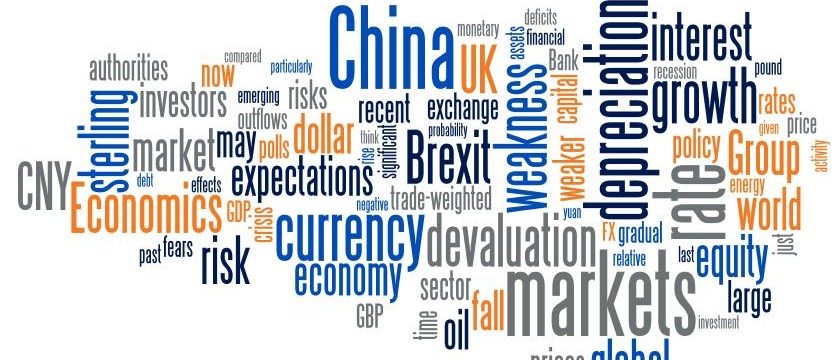
The US and their impact on Global Markets
When it comes to financial markets, perfect vision is impossible. This time last year, markets had endured their worst December since 1970 and investors were bracing themselves for recession. By March, the US Federal Reserve (Fed) had altered its plans for higher interest rates to counter slowing economic growth and financial markets responded favourably. We have become accustomed to the mood of markets being prone to sudden change. In 2019, episodes of volatility resulted from US/China trade tensions, fears of a global slowdown and, in the UK, the threat of a no-deal Brexit. None of these issues are firmly resolved and they may remain the dominant storylines of 2020.
With the FED cutting interest rates three times in 2019, the result was good news for the market. As the world’s largest economy, what happens in America has implications globally and the return to easier monetary policy was a focal point in the market gains achieved in 2019. It was also good news for the consumer, with lower interest rates helping to increase wages and household spending. This allowed the US economy to fend off the worst effects of a recession in manufacturing. As recent as December 2019 the Fed indicated that there will be no further changes to interest rates until 2021 and such expectations are now priced into markets.
Geopolitics
Donald Trump approved of the FED’s interest rate cuts and he will be hoping to get his way again, in November 2020 as he attempts to secure a second term in the Oval Office.
Throughout his first tenure he has supervised a record economic expansion (by length) that has proved more resilient than many predicted. It has been both helped (through tax cuts) and hindered (by trade wars) as a result of his own initiatives. At 3.5% unemployment he is presiding over its lowest level since 1969. The Presidential election will have an effect on the path of global markets in 2020 and another four years of Trump may, surprisingly, be investors’ preferred outcome.
A related issue is the trade war with China, which was the biggest driver of market uncertainty in 2019. It’s clear that tensions run deep, with the US aiming to protect its position as the dominant global superpower in the face of unprecedented Chinese expansion. As a result, the issue is likely to extend to this year’s presidential election and beyond. However, for all the rhetoric, both sides are cautious about the impact on economic growth.
Brexit
From the UK investor’s perspective, the other major issue that refuses to disappear is Brexit. In December, the market enjoyed its best day in three years following the General Election, and the new Government has wasted little time in attempting to “get Brexit done”. But for all the optimism, a Withdrawal Agreement is just the beginning. There will follow some complex negotiations on trade and the nature of any future relationship with the EU. The outlook is a little bit clearer, but the uncertainty is not yet over for UK companies.
A Brighter Outlook Is Better for Equities
In 2019 there was evidence building of a recession in the manufacturing sector and the “FAANG” stocks (Facebook, Amazon, Apple, Netflix, and Google), which for so long had all moved in an upward direction, began to fall. However, with news of a preliminary trade deal between the US and China, combined with expectations of a more orderly Brexit, economic forecasts have been revised upward. The ‘bull’ market rumbles on. Despite the brighter outlook, earnings expectations in the equity market remain cautious. In the UK, reduced risk of a “no deal” scenario helps to alleviate the uncertainties that faced UK businesses last year, while a trade truce is good for exporters.
Finally
We are all aware that things can change quickly and as the ‘bull’ market reaches its 11th birthday, it’s important for investors to remain diversified. Valuations in some areas are expensive and there are only so many levers that Central Banks have left to combat further weakness in economies. The outlook for 2020 can therefore be described as ‘a summer’s day in Scotland – reasonably bright, but you can never be sure it isn’t going to rain’.
For clarification of any points discussed above and any future independent advice regarding your own financial planning, please do contact us on 01626 833225 or email [email protected]
The views and opinions contained herein are those of Loughtons Independent Financial Advisers and may not necessarily represent views expressed or reflected in other economic communications, strategies or funds.
This document is intended to be for information purposes only and it is not intended as promotional material in any respect. The material is not intended as an offer or solicitation for the purchase or sale of any financial instrument. The material is not intended to provide, and should not be relied on for, accounting, legal or tax advice, or investment recommendations. Information herein is believed to be reliable but Loughtons Independent Financial Advisers does not warrant its completeness or accuracy. No responsibility can be accepted for errors of fact or opinion. This does not exclude or restrict any duty or liability that Loughtons Independent Financial Advisers has to its customers under the Financial Services and Markets Act 2000 (as amended from time to time) or any other regulatory system.
Loughtons Independent Financial Advisers is a trading name of JPRS (South West) Limited. JPRS (South West) Limited is authorised and regulated by the Financial Conduct Authority.
